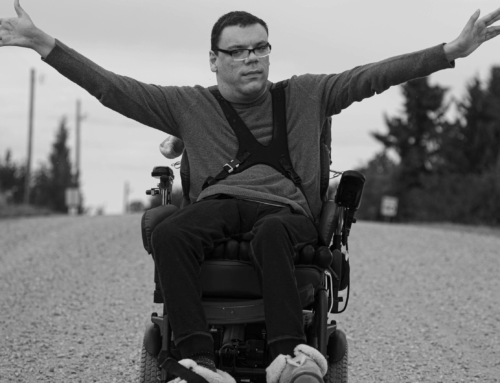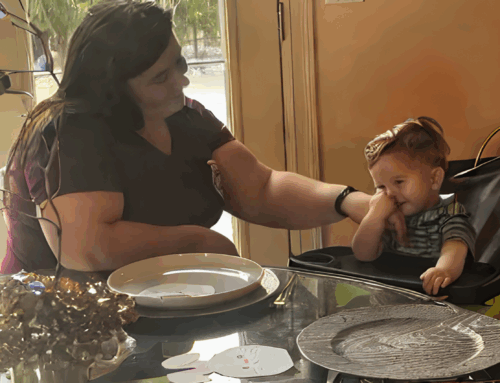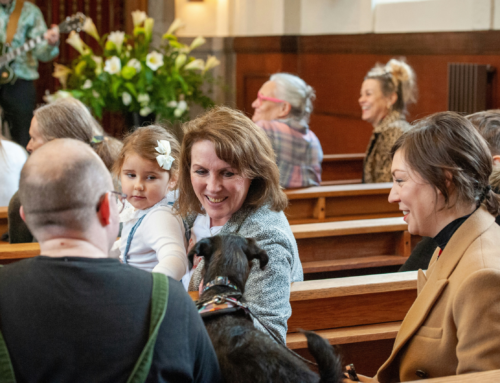 Mike Bonikowsky lives in Melancthon Township, Ontario with his wife and two kids. He studied English at Tyndale University College and has worked supporting people with developmental disabilities for the last ten years. He is the founder of Community Living Dufferin’s “Lives” program, which seeks to help people with developmental disabilities tell their stories in their own words.
Mike Bonikowsky lives in Melancthon Township, Ontario with his wife and two kids. He studied English at Tyndale University College and has worked supporting people with developmental disabilities for the last ten years. He is the founder of Community Living Dufferin’s “Lives” program, which seeks to help people with developmental disabilities tell their stories in their own words.
I spend each weekend, from Friday night to Sunday night, in a group home where I support six men and women with various developmental disabilities. Because of the uninterrupted length of time I spend there, the contrast between the world of the people I support and the world I experience the rest of the week is clear to me. In this particular home, the people I support spend much of their time isolated from society. Their world is almost monastic – as removed from mainstream culture as religious communities of past ages were from their own. Only, in many cases, isolation occurs because they face barriers to inclusion in communities rather than making a choice to be separate from community.
The people I support don’t follow many of the unwritten rules of our society. They may say exactly what they are thinking, whether it’s “appropriate” or not. They are not afraid to ask for help, shamelessly. Many times, I have seen the people I support attempt the impossible, unafraid of the failure that might result. There are many aspects of modern society that they do not comprehend, as the world in turn does not comprehend them. In this way many of the systems and structures of power and privilege have no power over them.
The people I support have taught me the value of depending on one another. There are ways in which we are all vulnerable, yet we live in a society that believes that the autonomy and independence are among the highest goods. We were made to need God, and to need one another, but we have forgotten this. Instead, we despise need and dependence, and praise above all else those who achieve their own goals, believing that they attain these by their own strength.
In the middle of this culture the men and women I support are a sign of contradiction. They do not want to be cool, separate, or aloof. They want to share themselves and to truly encounter those around them. With sudden laughter and sudden tears, sudden rage and sudden embraces, they make easy mockery of the distance that people often try to keep from them.
The people that I support bear God’s image and proclaim God’s message in a unique way from anyone else I know. Their humanity is undisguised, and I have learned from them the power of being honest about our humanity. God longs to speak uniquely through each of us, yet we learn to hide and translate and obscure this message. The people I have known with developmental disabilities have taught me who I am as a human being, and have shown me who we can be if we truly listen to others.
Too often we fail to listen by forcing others into shallow cultural molds of what is socially acceptable. Instead, we must follow Christ’s example in welcoming those who are on the margins of society into the centre of community life. We must stop being afraid of awkward interactions, uncomfortable silences, or human displays of emotion. We must have the courage to face our own humanity and the humanity of others, simply welcoming those who are different into the world they live in, a world that desperately needs their presence. It may be only then that we have “ears that can hear and hearts that can receive” the Word that God is longing to reveal.


